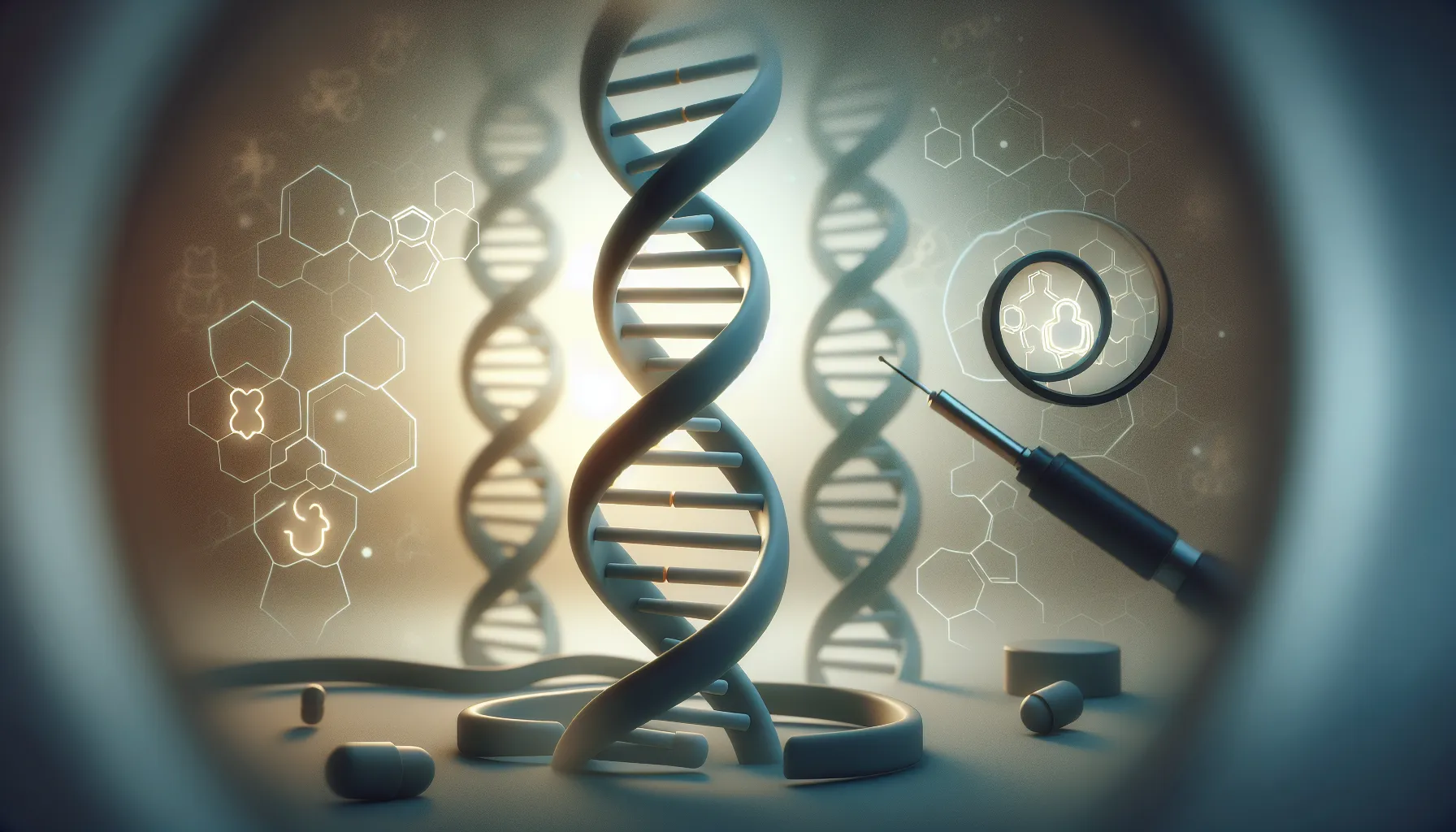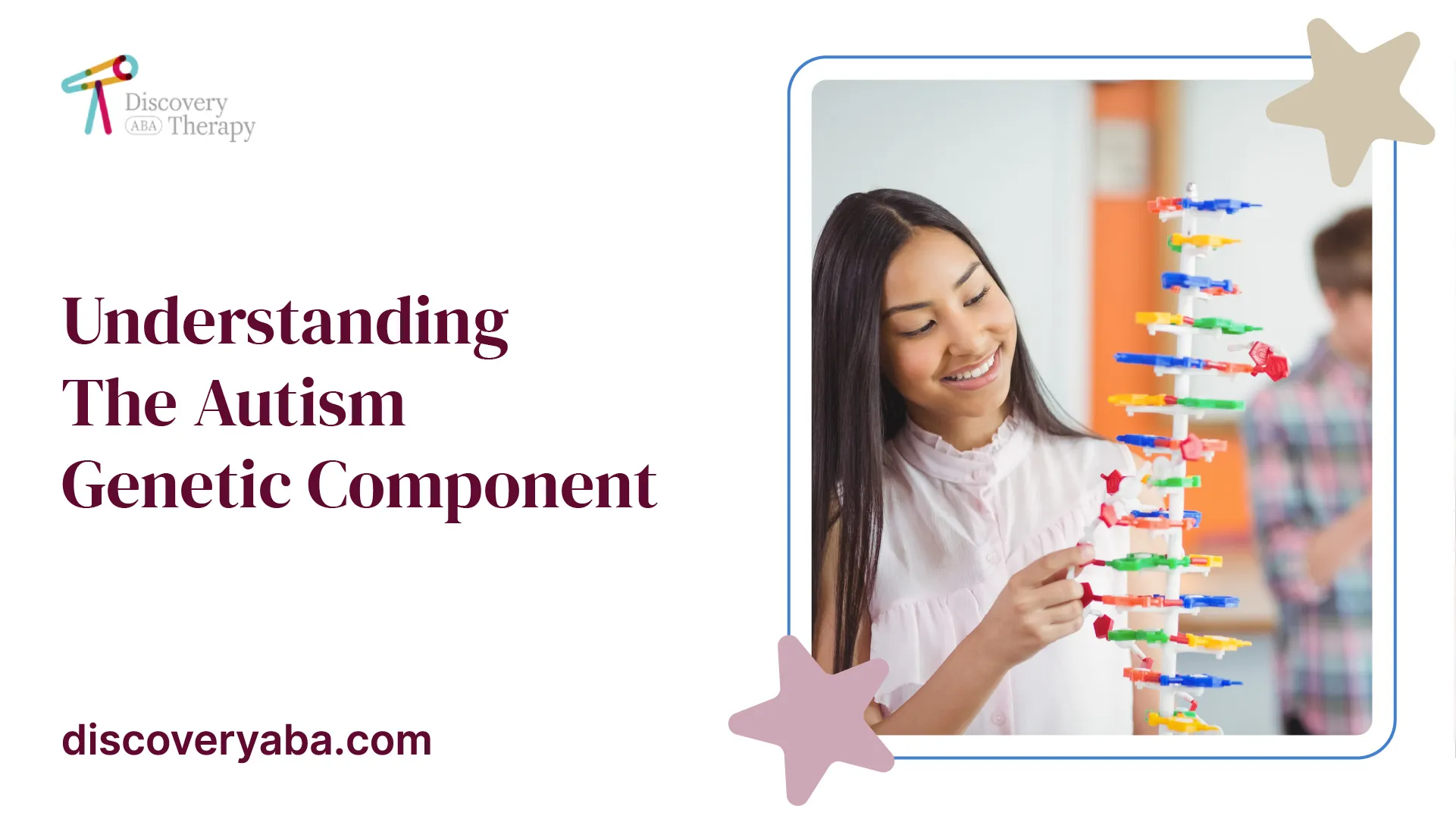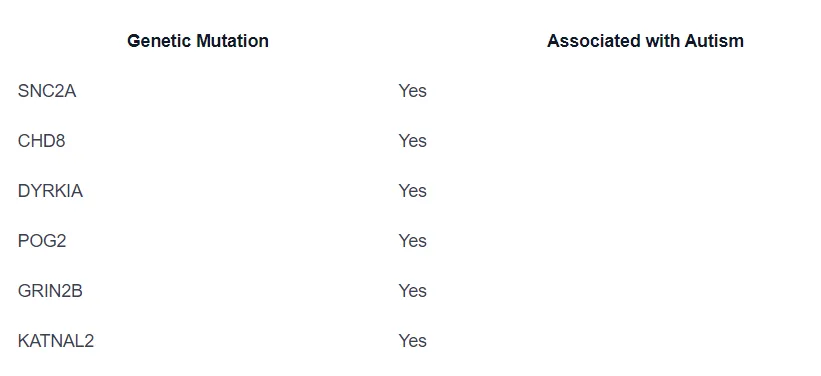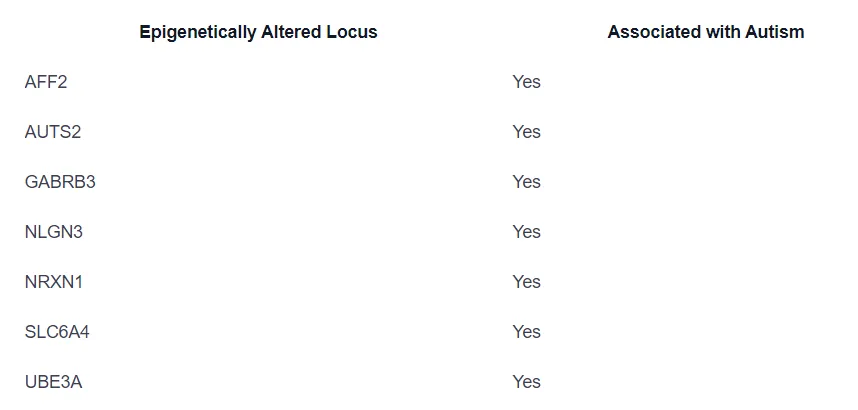Uderstanding the Autism Genetic Component
Unraveling the autism genetic component: Discover the science behind its heritability and genetic markers.

Understanding Autism Genetics
Autism is a complex disorder that arises from a combination of genetic and environmental factors. Significant progress has been made in understanding the genetic underpinnings of autism, but numerous questions still remain unanswered. It is important to note that environmental factors also contribute significantly to the risk of developing autism and warrant further investigation.
Genetic vs. Environmental Factors
Autism is not solely determined by genetic factors. Environmental influences also play a crucial role in the development of the disorder. The interplay between genetic and environmental factors is complex and multifaceted. While genetic predisposition sets the stage for autism, environmental triggers, such as prenatal factors, toxins, and maternal infections, can contribute to the manifestation of the disorder.

Heritability of Autism
The heritability of autism is well-established. Studies have shown that there is a high recurrence risk of autism in siblings of affected individuals. The risk ranges from 2% to 8% in siblings, and it increases to 12% to 20% if the siblings exhibit impairment in one or two of the three domains affected in autism.
It is important to note that autism is not caused by a single gene mutation in the majority of cases. While specific genetic disorders, such as fragile X syndrome and Rett syndrome, are associated with autism, less than 1% of non-syndromic cases can be linked to mutations in any single gene. This suggests that autism is not a single clinical entity but rather a behavioral manifestation of numerous genetic and genomic disorders.
Genetic research has revealed that identical twins have a higher concordance rate for autism compared to fraternal twins. If one identical twin has autism, there is an 80% chance that the other twin will also have it. In contrast, the rate for fraternal twins is approximately 40%. This indicates a strong genetic component in the development of autism.
Understanding the genetic and environmental factors involved in autism is crucial for developing effective interventions and support strategies for individuals with autism spectrum disorder. Ongoing research continues to shed light on the complex genetic landscape of autism, bringing us closer to a comprehensive understanding of this disorder.
Genetic Markers of Autism
Understanding the genetic markers associated with autism is crucial for unraveling the complex nature of this disorder. By studying genetic mutations and epigenetic changes, researchers have made significant strides in identifying the underlying genetic factors involved in autism.
Identified Genetic Mutations
Whole exome sequencing has played a pivotal role in the identification of genetic mutations associated with autism. Numerous genetic loci and alterations in the genetic sequence have been linked to an increased likelihood of developing autism. Some of the identified genetic mutations associated with autism include:

These genetic mutations indicate that autism is not a single clinical entity but rather a behavioral manifestation of various genetic and genomic disorders. Further research is required to understand the specific roles these mutations play in the development of autism.
Epigenetic Changes in Autism
Epigenetic dysregulation has been observed in individuals with autism. Epigenetic changes refer to alterations in gene expression that are not caused by changes in the underlying DNA sequence. These changes can include DNA methylation differences, histone modifications, and alterations in gene expression. Epigenetic changes in autism may be influenced by both genetic mutations and environmental exposures.
Several loci associated with autism have been found to exhibit epigenetic changes, including:

These epigenetic changes provide insights into the mechanisms underlying the development of autism. The interplay between genetic mutations and epigenetic modifications further contributes to the complexity of autism genetics.
By studying the identified genetic mutations and epigenetic changes associated with autism, researchers hope to gain a deeper understanding of the genetic basis of autism spectrum disorder (ASD). This knowledge can potentially lead to advancements in diagnosis, treatment, and support for individuals with autism and their families. Continued research in this field is vital for unraveling the intricate genetic components of autism.
Research Advances in Autism Genetics
Research in the field of autism genetics has made significant advancements in recent years, shedding light on the complex genetic factors that contribute to the development of autism spectrum disorder (ASD). Two notable areas of research include whole exome sequencing and epigenetic dysregulation.
Whole Exome Sequencing
Whole exome sequencing has played a pivotal role in identifying specific genetic mutations associated with autism. This technique allows scientists to examine the coding regions of an individual's genome, which are responsible for producing functional proteins. Through whole exome sequencing, several genetic mutations related to autism have been identified, including SNC2A, CHD8, DYRK1A, POGZ, GRIN2B, and KATNAL2.
By analyzing the genetic variations within these genes, researchers have gained insights into the molecular and cellular mechanisms underlying autism. However, it is important to note that these identified genetic mutations only account for a portion of ASD cases. They are estimated to contribute to around 10-20% of individuals with ASD.
Epigenetic Dysregulation
Epigenetic dysregulation refers to changes in gene expression that occur without altering the underlying DNA sequence. Epigenetic modifications, such as DNA methylation changes, histone modifications, and alterations in gene expression, have been observed in individuals with autism. These epigenetic changes may be influenced by both genetic mutations and environmental exposures.
Understanding epigenetic dysregulation is crucial as it provides insights into how genetic and environmental factors interact to contribute to the development of autism. By studying these epigenetic changes, researchers aim to unravel the intricate mechanisms that underlie the complex nature of ASD.
The field of autism genetics continues to evolve as researchers uncover new genetic markers and explore the role of epigenetic dysregulation. These research advances are vital for improving our understanding of the genetic component of autism and paving the way for targeted interventions and personalized treatments in the future.
Biomarkers and Autism Risk
In the quest to better understand the genetic component of autism, researchers have identified specific biomarkers that may be associated with an increased risk of autism. Two significant areas of focus in this regard are immune function biomarkers and mitochondrial dysfunction.
Immune Function Biomarkers
Biomarkers related to immune function have shown promise in identifying potential risk factors for autism. Studies have found evidence of immune dysregulation in individuals with autism, including abnormalities in cytokine levels, immune cell function, and inflammatory markers. While the exact relationship between immune dysfunction and autism is still being investigated, these biomarkers provide valuable insights into the underlying mechanisms of the condition.
Understanding immune function biomarkers can aid in early detection and intervention for individuals at risk of autism. By identifying these biomarkers, healthcare professionals can develop targeted interventions to address immune dysregulation and potentially mitigate the severity of autism symptoms.
Mitochondrial Dysfunction
Mitochondria, often referred to as the "powerhouses" of our cells, play a crucial role in energy production and cell function. Research has suggested a link between mitochondrial dysfunction and autism, with some individuals with autism exhibiting impaired mitochondrial function.
Mitochondrial dysfunction can lead to energy deficiencies in various bodily systems, affecting brain development and function. This disruption may contribute to the symptoms associated with autism. While not all individuals with autism have mitochondrial dysfunction, understanding the biomarkers associated with it can help identify subgroups of individuals who may benefit from targeted interventions.
Investigating mitochondrial dysfunction as a potential biomarker can provide valuable insights into the underlying biology of autism and guide the development of personalized treatment approaches.
By studying immune function biomarkers and mitochondrial dysfunction, researchers aim to enhance our understanding of the genetic underpinnings of autism. These biomarkers offer potential avenues for early detection, intervention, and the development of targeted therapies. However, further research is needed to fully comprehend the complex relationship between these biomarkers and the development of autism.
Genetic Testing for Autism
Genetic testing plays a crucial role in understanding the genetic component of autism and can provide valuable insights for individuals with autism and their families. It offers several benefits and considerations that are important to understand.
Importance of Genetic Testing
Genetic testing is recommended for individuals with an autism diagnosis, yet currently, fewer than half of people with autism undergo testing. Genetic testing can help identify genes involved in co-occurring conditions associated with Autism Spectrum Disorder (ASD), such as epilepsy, depression, ADHD, gastrointestinal issues, sleep problems, schizophrenia, anxiety, and epilepsy. Understanding these genetic links can aid individuals in managing their symptoms and improving their overall quality of life.
Furthermore, genetic testing can reveal potential future medical issues caused by co-occurring conditions and guide therapies or care plans for individuals with autism. It can act as a life-saving screening tool by identifying genetic mutations linked to serious illnesses, such as epilepsy or cancer. This knowledge empowers individuals to make informed choices that promote good health and well-being.
Benefits and Concerns
Genetic testing offers various benefits for individuals with autism and their families. By identifying specific genetic variations linked to ASD, it allows for a more personalized approach to healthcare. This information can guide interventions, therapies, and treatment plans, leading to more effective and targeted support [5]. Genetic testing can also contribute to early detection, enabling timely interventions for co-occurring conditions like epilepsy, which is seen in about 30% of autistic individuals.
However, it is essential to consider some concerns related to genetic testing for autism. Genetic testing may reveal unexpected or uncertain results, leading to emotional and psychological implications for individuals and their families. Genetic counseling can provide support and guidance in understanding the results and making informed decisions. Consulting medical specialists, genetic counselors, neurodevelopmental pediatricians, or clinics specializing in autism or developmental disorders experienced in genetic testing is advised for those seeking genetic testing.
Advancements in genetic testing technologies, such as whole exome sequencing (WES) and whole genome sequencing (WGS), have significantly improved the understanding of genetic variations associated with ASD. These advancements, supported by organizations like Autism Speaks, aim to identify specific DNA changes that provide insights into autism and co-occurring conditions, enabling more personalized healthcare.
By embracing genetic testing, individuals with autism can gain a deeper understanding of their condition and its genetic underpinnings. This knowledge can inform interventions, enhance support, and lead to improved outcomes for individuals with autism and their families.
Genetic Testing for Co-occurring Conditions
Genetic testing plays a crucial role in understanding the genetic component of autism and its co-occurring conditions. By identifying specific genes and genetic mutations associated with autism spectrum disorder (ASD) and related conditions, genetic testing can guide interventions and improve the quality of life for individuals with autism. Let's explore two common co-occurring conditions and the importance of genetic testing in their management.
Epilepsy and Autism
Epilepsy is a neurological disorder characterized by recurrent seizures. It is one of the most common co-occurring conditions found in individuals with autism. Genetic testing can help identify the genetic links between epilepsy and autism, providing valuable insights for personalized healthcare and interventions. According to Autism Speaks, genetic testing can reveal genetic mutations associated with epilepsy, allowing individuals to make informed choices regarding their lifestyle and healthcare.
Mental Health Disorders
Mental health disorders, such as depression, anxiety, and schizophrenia, often co-occur with autism. Genetic testing can uncover genetic variations and alterations in the genetic sequence, expression, and epigenetic changes that contribute to these co-occurring conditions. Understanding the genetic underpinnings of mental health disorders in individuals with autism can inform targeted therapies and interventions, improving overall mental well-being.
Genetic testing provides a comprehensive understanding of the genetic landscape associated with autism and its co-occurring conditions. It is recommended for anyone with an autism diagnosis, as it can guide therapies, care plans, and interventions tailored to individual needs. Unfortunately, as Autism Speaks points out, fewer than half of people with autism currently undergo genetic testing. It is essential for individuals and families to consult with medical specialists, genetic counselors, neurodevelopmental pediatricians, or clinics specializing in autism to access genetic testing services.
Advancements in genetic research, such as whole exome sequencing (WES) and whole genome sequencing (WGS), are expanding our understanding of genetic variations linked to ASD and its co-occurring conditions. Organizations like Autism Speaks advocate for these newer genetic testing technologies to further personalize healthcare and provide insights into autism and related conditions.
By harnessing the power of genetic testing, we can unravel the complex genetic landscape of autism and its co-occurring conditions. This knowledge enables us to develop targeted interventions, improve healthcare outcomes, and enhance the overall well-being of individuals with autism and their families.
References
- https://www.ncbi.nlm.nih.gov/pmc/articles/PMC3513682/
- https://www.spectrumnews.org/news/autism-genetics-explained/
- https://www.ncbi.nlm.nih.gov/pmc/articles/PMC4129499/
- https://www.ncbi.nlm.nih.gov/pmc/articles/PMC6710438/
- https://www.autismspeaks.org/science-blog/
- https://www.achievebetteraba.com/blog/autism-genetic-component
Does Your Child Have An Autism Diagnosis?
Learn More About How ABA Therapy Can Help
Find More Articles
Contact us
North Carolina, Nevada, Utah, Virginia
New Hampshire, Maine
Arizona, Colorado, Georgia, New Mexico, Oklahoma, Texas
.avif)




































































































